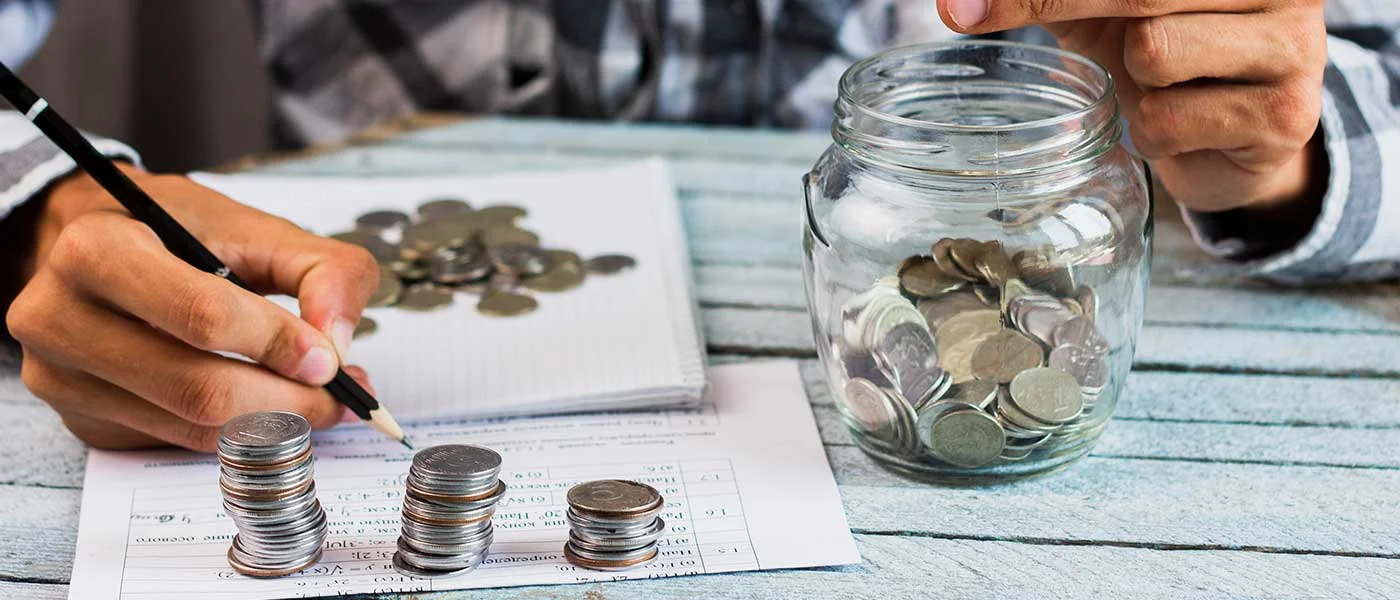In this time of inflation, managing family finances can be hard when you have so much to do. With lots of bills to pay like rent, utilities, and groceries, but with careful planning, you can save money. Every goal can be achieved with proper planning you must start by making a budget by listing your income and expenses.
Just highlight those areas which can be cut out, like eating out less. You can also consider making small lifestyle changes such as cooking at home instead of eating out, carpooling, or using public transport to save money on transportation costs. By taking these steps, you can create a sustainable financial plan to make ends meet and save for the future. Negotiate bills and consider cheaper options. Small changes, like cooking more at home, can add up to big savings. This helps you meet your needs and save for the future.
In this blog, you will have some budgeting tips for families to help save money on their expenses:
#1 Create a Detailed Budget
The first step in saving money on family expenses is to create a detailed budget. Once you have made a detailed budget, it's important to keep an eye on how much you spend and check your money goals regularly. This helps you cut down on the extra expenses and make changes if needed. It's highly recommended that you try to save money by finding cheaper ways to pay for things like electricity or buying groceries on sale.
The best tip is to have a secret money bag where you put some money aside from what you earn for emergencies or future needs. Doing this helps you stay on top of your family's spending and reach your money goals over time. Categorize your expenses, including fixed costs like rent or mortgage payments, utilities, groceries, transportation, and flexible spending. One way to save money is to keep track of your expenses. This will help you see areas where you can spend less and save more.
#2 Track Your Spending
After making a detailed budget now the main thing is to track your spending means checking where your money goes. It requires journaling every expense you make, no matter if it's a big expense or a small one. You can write in a notebook or use any special app for this. By keeping track, you compare what you thought you would spend to what you spent in actuality. This helps you see if you're staying within your budget or if you're spending too much in some areas.
You can sort your expenses and this sorting helps you see which parts of your budget are going as planned and which parts might need changing. Looking at your spending regularly compared to your budget helps you stay responsible with your money. If you see that you're spending too much in one area all the time, you can figure out ways to spend less there.
#3 Prioritize Needs Over Wants
Now make a proper list of those things which are your actual needs, not desires. Putting needs first means taking care of the most important things for a good life, like food, a safe place to live, healthcare, education, and getting around. After making sure these needs are covered, then you can think about spending money, time, and energy on things that are luxuries.
Things like fun activities, fancy items, eating out, or trips. This way of thinking helps keep life stable and secure because you are not overspending on things that are not vital. It also helps you make smart choices with your money, stick to a budget, and plan for the future, which all leads to a happier and more balanced life.
#4 Cut Down on Dining Out
If you religiously follow the “only needs” budget then definitely you will spend less or not on dining out. Eating out less means not going to restaurants and instead cooking meals at home more. This helps save money, makes you healthier, and makes life better overall. It's cheaper to cook at home because you don't have to pay for restaurant prices. Cooking at home also lets you choose what goes into your meals and how much you eat, which can make you healthier and help you manage your weight as well.
Eating at home also lets you spend more quality time with family and friends. You can learn new cooking skills, try out different recipes, and reduce food waste. So, if you are looking for ideas on how to save money and cut down the eating expenses. Then, plan your weekly menus, buy groceries in bulk, and use leftovers creatively to minimize food waste and save on grocery costs.
#5 Use Coupons and Discounts
By using coupons and discounts, you can save a lot on your monthly expenses. It means taking advantage of special offers or deals to save money when buying things. These deals can be found in different places like stores, restaurants, online shopping sites, and places where you have fun. Coupons are special tickets that give you discounts. Discounts are when you pay less money by using a special code. It helps you save money on things you buy regularly, like groceries, eating out, travel, and entertainment.
#6 Shop Smart for Groceries
This strategy will help you to save money while making healthy choices and get the most value while shopping. You can use your budgeting skills on money saving tips for families. First Make a list before you go shopping to avoid impulse buying. Before going, check your pantry and other items thoroughly so you will not things in duplicate. Compare prices and use discounts or coupons. Focus on buying fresh, whole foods like fruits, vegetables, lean meats, and whole grains in larger quantities. Look for stores with good prices or loyalty programs. Set a budget and stick to it. This helps you avoid overspending and keeps your grocery expenses in check.
#7 Reduce Energy Consumption
By doing this step, you can protect the environment, save money, and reduce energy sources. You can reduce energy expenses by getting energy-efficient appliances, using LED lights, making sure your homes are well-insulated, and setting your thermostats to save energy when you're not home. Another way to cut down on energy is by using eco-friendly transportation options. This includes carpooling, taking public transport, walking, biking, or driving electric or hybrid cars. We can also save energy by being mindful of how we use electricity.
Turning off lights and devices when we don't need them, unplugging chargers, using natural light and fresh air, and washing clothes in cold water all help save energy and reduce our impact on the environment. Overall, you can reduce energy by making small changes in your habits, and using technology wisely that promotes energy conservation and sustainability.
#8 Avoid Impulse Purchases
Avoiding impulse purchases means not buying things that are luxuries and you don’t want them as your “needs”. First, it helps you manage your money better. Instead of spending on things you don't need. It also prevents clutter and waste at home. When you buy things without any planning, you might end up with stuff you don't use. Eventually, it takes up space and money obviously. The thoughtful habit of purchasing affects your life and the environment in a disciplined way.
To avoid impulse buying, you can make lists before shopping, set spending limits, wait before buying to think it over, compare prices and practice self-control when tempted to buy spontaneously. Overall, avoiding impulsive purchases helps you save money, reduce waste, and make smarter choices about what you buy.
#9 Plan for Emergencies
If you are a smart saver then you are better at planning things beforehand for any unexpected emergencies. Things that can cause problems in your life, like safety issues, health problems, or money troubles. It's important to be prepared so you can handle these situations well and not be too stressed out. Saving money for emergencies means putting aside some money in case you need it for sudden expenses like medical bills, car repairs, or any sudden expense. Another thing to do is to prepare emergency supplies.
Keep things like non-perishable food, water, first aid kits, flashlights, batteries, blankets, medicines, and important documents in a safe place in case you need them. Make a separate budget for emergencies in your monthly expense budget, in case u need it any time of the month. You can also make a secret pouch where you can save money for rainy days.
#10 Review and Adjust Regularly
Regularly checking and changing how you spend money is a key part of good money management. This means you are aware of how much you earn and what are your expenses. Start by keeping track of everything you earn and spend, like rent, bills, groceries, and extra things like eating out or entertainment. Once you see where your money goes, think about whether it matches your financial goals. In case you find out some areas where you are spending too much then cut back those expenses and manage the budget easily.
If your income increases, consider putting more into savings, paying off debts faster, or investing for the future. This helps you make smarter choices with your money, focus on what's important, and adjust as your financial situation changes. Overall, regularly reviewing and adjusting your spending habits is a smart way to manage your money well and reach your financial goals. Life circumstances and priorities may change, so be flexible and proactive in adapting your budget to meet your family's growing needs and goals.
#11 Cancel Unused Subscriptions
Cancelling subscriptions you don't use is really important for managing your money well. Subscriptions are things like streaming services, gym memberships, or magazine subscriptions that you pay for weekly/ monthly/ yearly basis. Sometimes we sign up for these but then forget about them or stop using them. The first step is to check all your subscriptions regularly, if you find some of them useless then unsubscribe and save your money.
Some subscriptions often require only one person to be involved and other family members can share the subscription benefits, so make smart choices and be within your set budget to avoid overspending. You can then use that saved money for things that matter more to you.
#12 Buy Used Items
If you are a smart buyer then you know so many thrift stores as well. Buying used items is a great idea for saving money and helping the environment. When you buy something used, like clothes, furniture, electronics, or even cars, you usually pay less than a brand-new item. Although, it requires a lot of time and energy to find the perfect conditioned items but it will save you a lot of money. Plus, buying used items helps reduce waste and makes things last longer, which is good for the environment.
For this purpose, you can shop at thrift stores, online marketplaces, or go to garage sales to find good stuff at a fraction of the original price. Another benefit is that you can often talk with the seller and try to get a lower price as a right of the consumer.










.jpg)









![When Will Walmart Release Black Friday Ad? [ULTIMATE Guide]](https://www.mysavinghub.com/assets/images/blog/798_large_When-Will-Walmart-Release-Black-Friday-Ad-ULTIMATE-Guide.webp)




